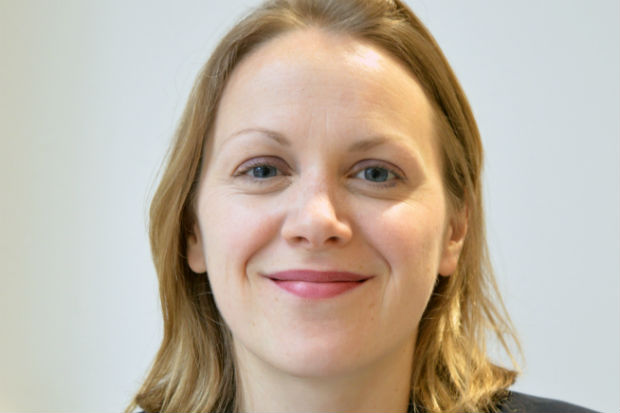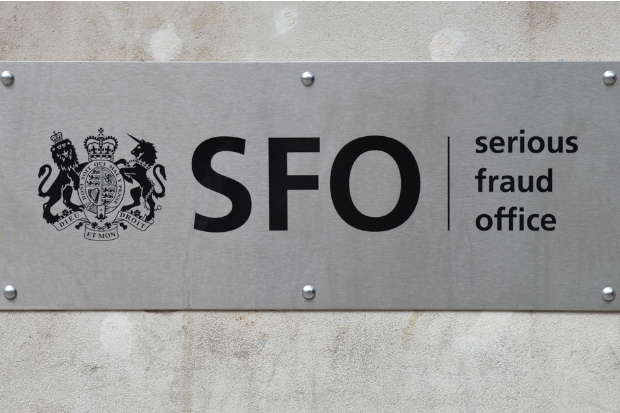
This year marks 100 years of the Sex Disqualification (Removal) Act 1919, which paved the way for women’s admission to the legal profession in the UK.
As a lawyer at the Serious Fraud Office (SFO), I see at first-hand the value of diversity in the workplace.
Work to do to achieve parity
Equal access to the legal profession has progressed significantly since 1919. However, we still have some way to go to achieve full gender parity in recruitment to particular functions, promotion to the higher levels and pay.
The Civil Service Diversity and Inclusion strategy sets out the importance of how an effective Civil Service must reflect the society it serves. (Currently, 53.9% of civil servants are women and 44.2% of Senior Civil Servants are female.)
In the SFO, we represent the public by investigating and prosecuting serious and complex crime on their behalf. We would do a poorer job, miss out on valuable expertise, and could discourage members of the public from coming forward as victims and witnesses, if we did not reflect society. So, I am proud to say that the SFO bucks the trend in law with an executive team that is 50:50 female and male.
Lisa Osofsky, SFO Director, is the public face of the organisation. In turn, Sara Lawson QC will be joining as the SFO’s new General Counsel from May.
However, Lisa is not our first female Director. That honour went in 1990 to Dame Barbara Mills, who was hired only three years into the SFO’s existence. Dame Barbara successfully prosecuted the most high-profile case of the SFO’s early years, securing convictions in the Guinness fraud case. Our second female Director, Rosalind Wright, who headed both the predecessor to the SFO and the SFO itself, was also an influential figure in the UK’s fight against serious economic crime.

Towards full equality
On 1 March 2019, through the SFO, I had the pleasure of attending a Women in Law conference in Vienna, alongside other lawyers from Europe and beyond.
The conference had an emphasis on women in leadership and how to further advance gender equality and inclusion. Emerging from the conference were practical suggestions that, in my view, could advance equality for women in law and elsewhere:
- It is not enough to have a few female role models if the organisational culture remains the same. It is necessary to consider intersectionality and advance diversity more broadly, with male champions joining the cause to end stereotyping and promote cultural change. Does the humour used in the workplace encourage and respect diversity? After all, there is a risk of a loss of talent, if there is not a positive working environment and culture.
- We need to consider not only parity of pay and opportunity between men and women in the same role but also to ensure equality between functions of equal value. In this, organisations need to consider whether there are functions where the roles in practice are predominantly filled by men or women, even if they could objectively be done by either, and to ensure they are equally remunerated.
- We need to go beyond blind recruitment to tackle unconscious bias, by actively ensuring equality and fairness in the allocation of work, ensuring objectivity and balance. If tasks are not assigned equally, it will be more difficult for those disadvantaged to demonstrate their skills and experience when applying for promotion. There is a need to actively ensure equal opportunity to take on new challenges.
- While most organisations now have a flexible working policy, there is a need to ensure that the attitude to flexible working espoused by line managers in practice is consistent with the policy. Would all employees, whether men or women, feel able to ask to work part-time, from home or to take a career break or would they worry it would be frowned upon, that they could be disadvantaged in the allocation of work or would they worry about being moved teams during their absence?
- Team socials also need to take into account the need to promote inclusion and diversity. Do work socials have a tendency to not include all the team? For example, are they routinely in the pub? Are they at a time that conflicts with outside commitments? Do members of the team perceive that work is allocated by managers based on their attendance at socials? Likewise, planning team outings should also not be based on gender stereotypes.
To me, these suggestions are encouraging because they are not all difficult to enact. Most rely on existing processes or simply on awareness of gender equality issues from decision-makers and colleagues.
From the perspective of the legal industry, the centenary of female access to law is a great reminder of the ongoing journey to equality – not only equality of pay, but of opportunity and responsibility. But it should also serve as a reminder to everyone of the historic struggle for gender equality, and that we can all do more to advance equality in the workplace more broadly.

1 comment
Comment by Mark Mavin posted on
Excellent blog on equality in the legal profession in the civil service. It is always right and proper to highlight areas of inequality and yet when you look at another directorate, The Crown Prosecution Service, their own diversity statistics (to 31 March 2018) show:
61% of solicitors are female
52% of barristers are female
65% of CPS headcount is female
and there were 96 more successful female internal applicants. It's funny how statistics showing where men are under represented are ignored.
Does gender parity just work one way i ask?